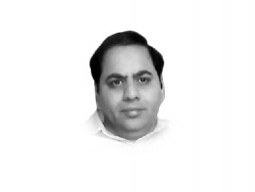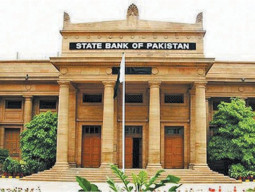
After Saddam Hussein, Iraq is in disarray; after Hosni Mubarak, Egypt is teetering; Libya promises nothing better. And after Musharraf, Pakistan’s democracy is dysfunctional. Among Muslims, only the market state in the Gulf may survive. In the Far East, too, it is the market state that looks like marching on. Muslim Indonesia and Malaysia may survive if they don’t exterminate their entrepreneur Chinese minorities under the spur of Islam. In Europe, when the dictator quits, civilisation takes over and the state survives. No such thing happens in the Muslim world. The premodern seduction of the Muslim mind prevents return to democracy. The blasphemy law is more powerful than any democratic constitution.
Dictators are charismatic. In Ghana, Kwame Nkrumah was the pan-African leader with charisma and promise. Taking him as the model, let us describe what the dictators did: they fashioned populist policies, followed up with an amalgam of dynamic idealism, vainglorious self-promotion and ruthless repression. Charisma accompanied autocratic enforcement of socialist utopia tipped with nationalisation and state sector dominance. What about foreign policy? You guessed it: terminal isolationism clothed in anti-imperialism, imitating a Greek hero before the gods got him for hubris.
Dictators that heralded the demise of the postcolonial state in Africa were: Nasser of Egypt, Habib Bourguiba of Tunisia; Moktar Ould Dada of Mauretania, Ahmed Sekou Touré of Guinea, Modibo Keita of Mali, William Tubman of Liberia, Milton Obote of Uganda, Julius Nyerere of Tanzania and Kenneth Kaunda of Zambia. The cruellest blow to populist consciousness was the failure of the policy of cutting off the postcolonial state from its former master. History now rejects the textbook that favours this separation.
The postcolonial state presumed that the resources the colonial states exploited were now all in the hands of the people and that, by replacing capitalism with socialism, these resources will enrich the people. It is under this presumption that most liberated states thought of distancing themselves from the former masters responsible for the ‘painful birth’ of the new state. On both these counts, they were wrong. And it has taken half a century for everyone to realise this. Charisma, ideology and socialism have caused suffering and retarded state development.
Pakistan is a little more advanced in evolution than Muslim states elsewhere. It has suffered dictatorship and has learned to abominate it but still cannot live democratically because of the Muslim mind associating utopian governance with a premodern legal code. It seeks honour too, instead of a less honourable globally interdependent growth that forces it to link up with enemies it hates. Its new isolationism — which in the world of weak states means defeat — is embodied in the word its politicians spread around as the new panacea: breaking the kashkol.
Kashkol is the begging bowl the nation is supposed to collectively kick in a gesture of defiance. In fact, it means saying goodbye to a world trying to get Pakistan to correct itself in its premodern adventure. Pakistan’s signal to the democracy-seeking mobs of youths in the Middle East is: ‘We’ve been there, and it doesn’t work for Muslims’.
Published in The Express Tribune, November 13th, 2011.




1726222798-0/Tribune-Pic-(13)1726222798-0-165x106.webp)













COMMENTS
Comments are moderated and generally will be posted if they are on-topic and not abusive.
For more information, please see our Comments FAQ